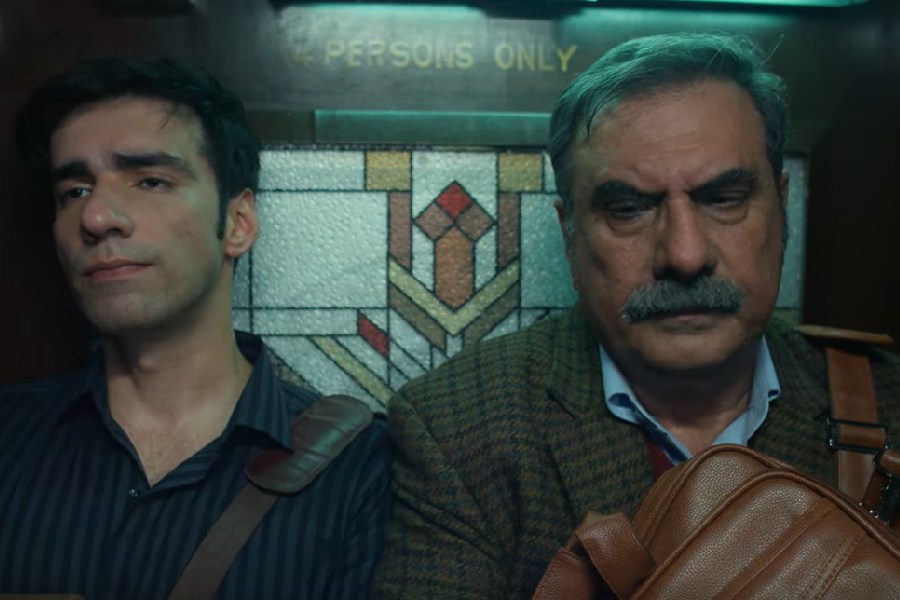There is no dearth of daddy issues in Bollywood films. Lately, we’ve seen a surge in man-children justifying their dysfunction as a product of — and in pursuit of — misplaced fatherly affection. But for every Animal, we need The Mehta Boys.
Boman Irani’s directorial debut is a fascinating yet familiar look into the fractured relationships of most Indian fathers and sons.
The story follows Amay Mehta (Avinash Tiwary), an architect who has to host his father, Shiv (Boman Irani), at his crumbling Mumbai flat days after losing his mother. Their arrangement is temporary, until Shiv joins his daughter in America, possibly never to return. Co-living for Amay and Shiv proves to be less than smooth, with the distance between them filling the awkward silences, augmented by work pressure, damp walls and conflicting ideologies.
The father-son-struggling-to-communicate trope is far from original. What sets it apart is Irani’s sensitive treatment of both characters. In an Instagram post, Irani revealed that the film drew heavily from his own void of not having a relationship with his father and building one with his children. The tension between Shiv and Amay feels real not because of violent slaps or piercing insults but hesitant handshakes. It is this restraint that keeps the viewer engaged.
However, The Mehta Boys can feel disjointed in parts. The arc around Amay’s workplace feels recycled from many films before. This also makes the grand payoff at the end slightly underwhelming. But this is not an architect’s coming-of-age story.
Irani’s performance and direction go hand in hand, and his commitment to subtlety ensures that the film never becomes a cliched Bollywood drama about daddy issues. He expertly sustains the tension, keeping viewers on edge for a potential shouting match which never quite arrives. Much like real life. This holding back allows the audience to empathise with both. We understand why Amay feels stifled when Shiv grips the handbreak of his car. We also understand why Shiv clings to his independence, even as his body betrays him. Every home has Shiv and Amay who have a lot to say to each other but can’t seem to find their voice.
At times, the subtlety does leave you wanting more. Shreya Chaudhry’s Zara has an interesting arc as the girlfriend who bonds with the father but isn’t utilised to full potential. The film creates multiple situations like this for nuanced explorations — grieving a parent while consoling another; the loneliness of aging parents when children move away; the balance between caregiving and independence — but doesn’t do justice to them.
So much of it is agonising. Maybe if The Mehta Boys hadn’t held back so much, it could have moved the audience to the very tears that its characters try so hard to suppress. Or maybe, that’s the point.











